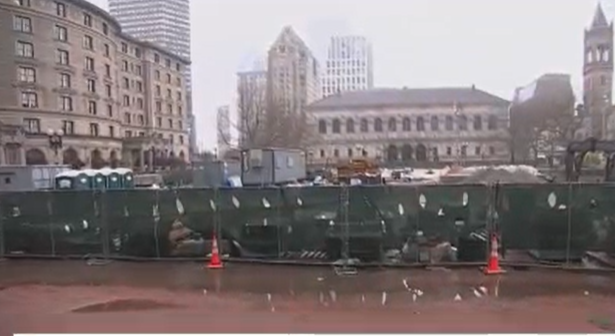Boston City Council is weighing whether to remove parking minimums for new development, which some see as a way to make it easier to build housing, while others see it as a recipe for more traffic and street congestion.
Follow NBC10 Boston:
https://instagram.com/nbc10boston
https://tiktok.com/@nbc10boston
https://facebook.com/NBC10Boston
https://twitter.com/NBC10Boston
https://bsky.app/profile/nbcboston.com
Boston City Council is weighing whether to keep parking minimums for new development.
Currently, the city requires developers who are building new buildings to create a certain number of parking spaces to account for parking demand.
WATCH ANYTIME FOR FREE
Stream NBC10 Boston news for free, 24/7, wherever you are. |
District 8 Councilor Sharon Durkan calls that process arbitrary, and hopes to remove the requirement, allowing builders to make their own estimation for how much parking is needed. But others on the council are concerned about what the changes would mean for the city's residents.
It's a debate that reflects the passionate perspectives from people around Boston who, when asked about parking in Boston, sound off on a lack of parking spots.
Get updates on what's happening in Boston to your inbox. Sign up for our News Headlines newsletter.
Somerville last month enacted a similar program; Cambridge did in 2022.
Durkan said ending parking minimums would let builders create more housing within a single project and face fewer hurdles during the overall process.
“We want the market to decide how much parking is built on a residential project and not let arbitrary minimums dictate how much,” Durkan said, noting that it would meet both the city's strategic and climate goals.
But some of colleagues are skeptical.
“What impact will this have on families that need a car to get to their office?” asked District 2 Councilor Ed Flynn.
“We have to think about the unintended consequences,” District 3 Councilor John Fitzgerald said.
Industry experts say the key to the plan is taking every project on a case-by-case basis, while also watching similar programs nearby.
“All of these cities were built at a time before parking was required and that’s what created urban form,” said Henry Grabar, author of "Paved Paradise: How Parking Explains the World."
“I don’t know if the answer is eliminating them everywhere, but, relaxing them and being realistic,” Massachusetts Home Builders President David O’Sullivan said.
Durkan said Boston will be blazing its own trail.
“We are unique,” she said. “The conversation we’re going to have on this issue is unique.”
A hearing on this proposal is scheduled for the afternoon of Jan. 28.




